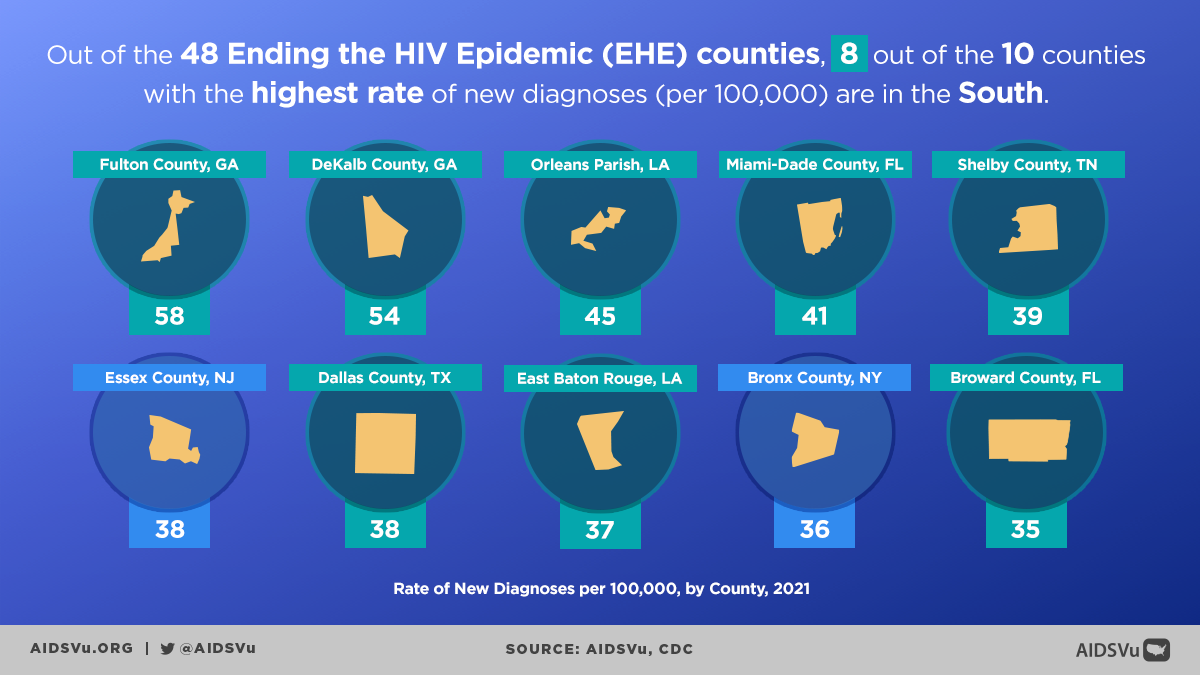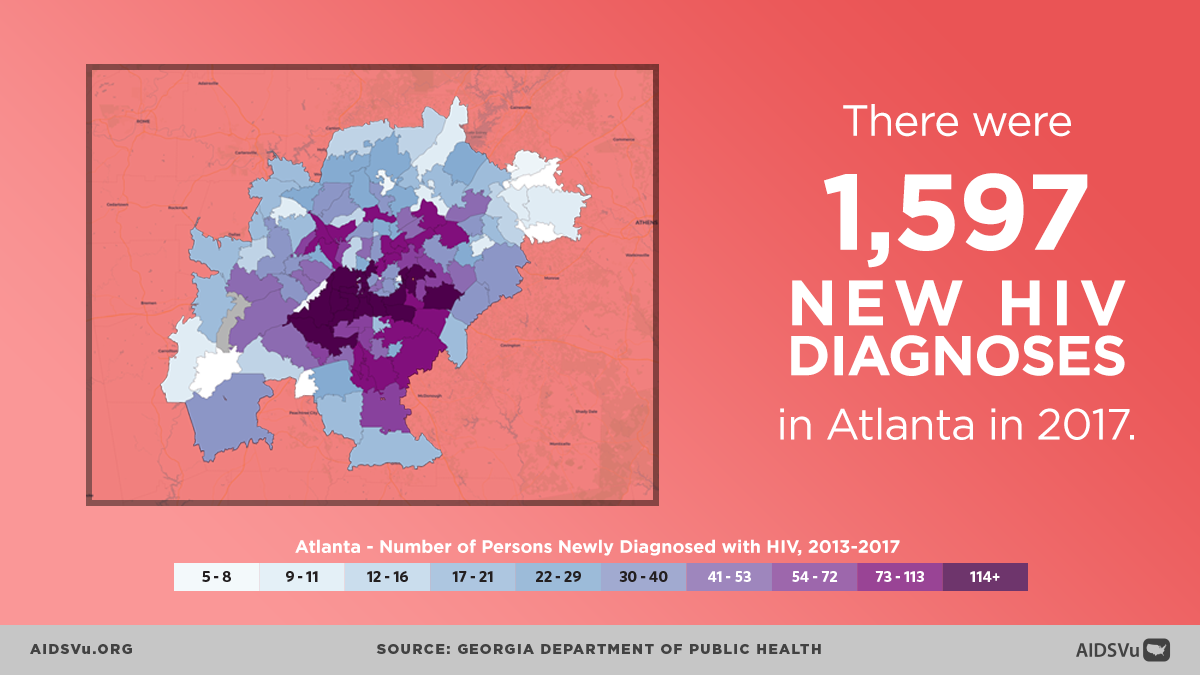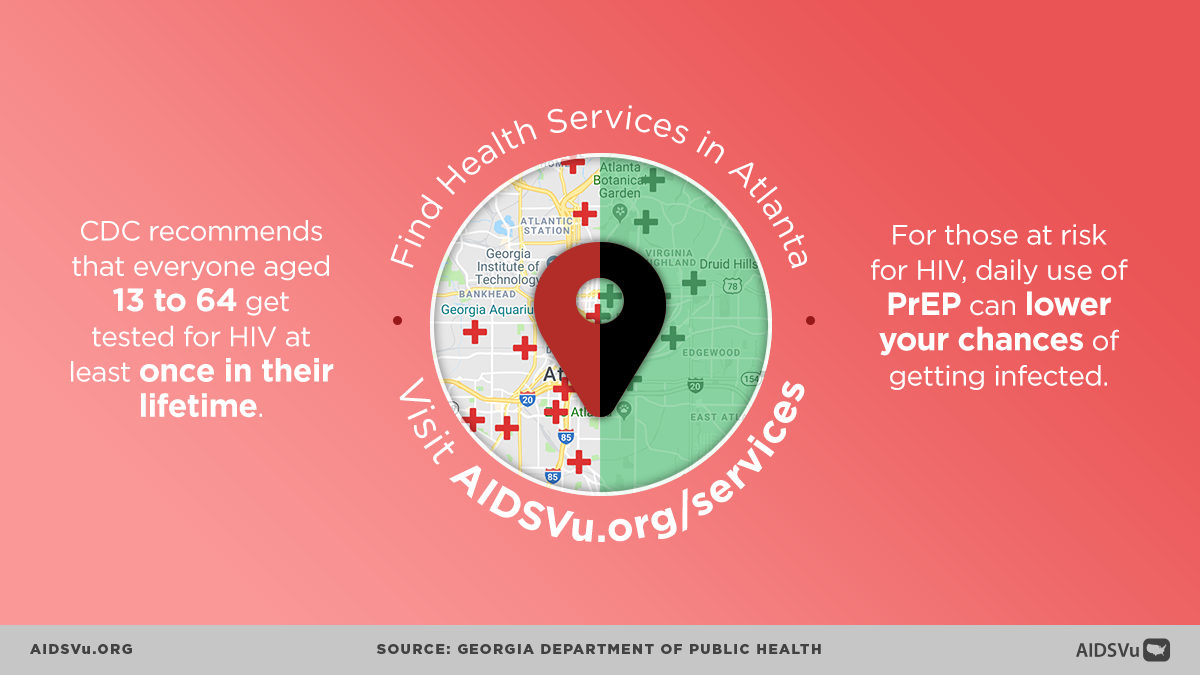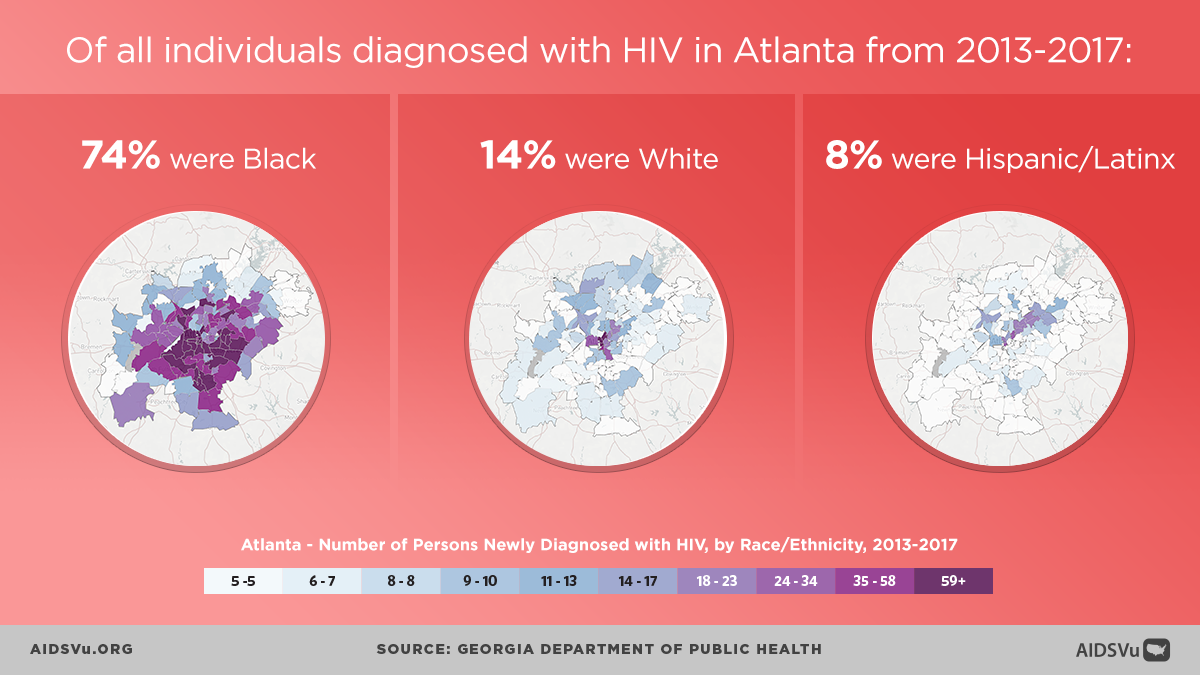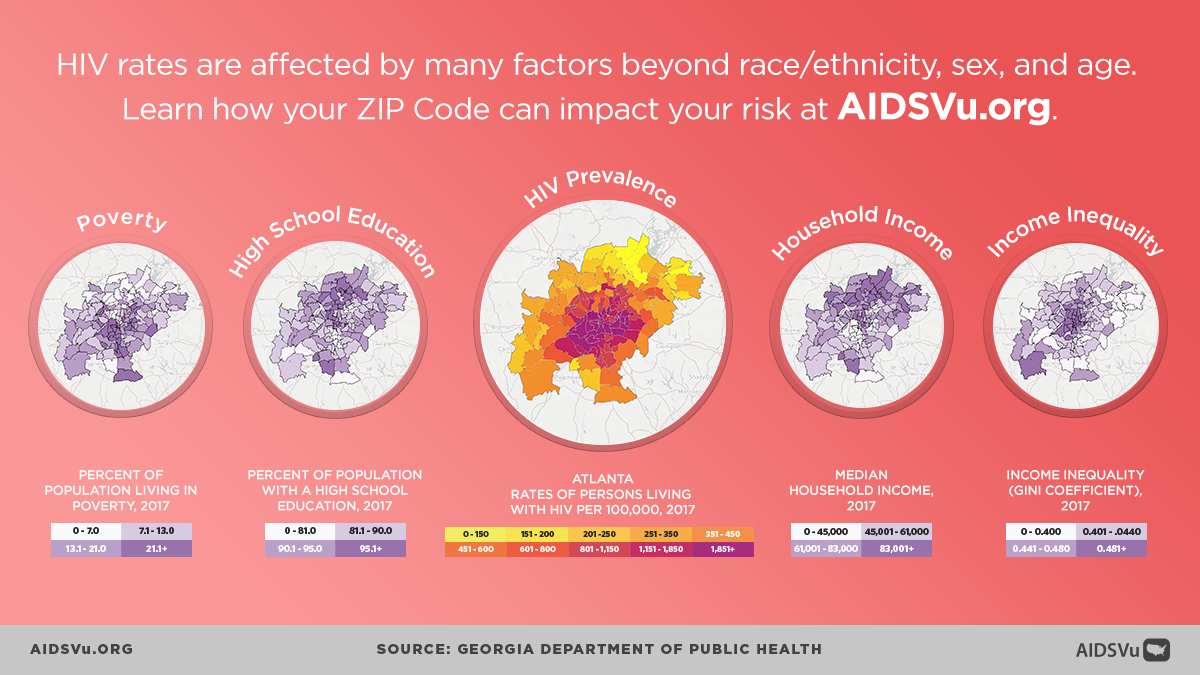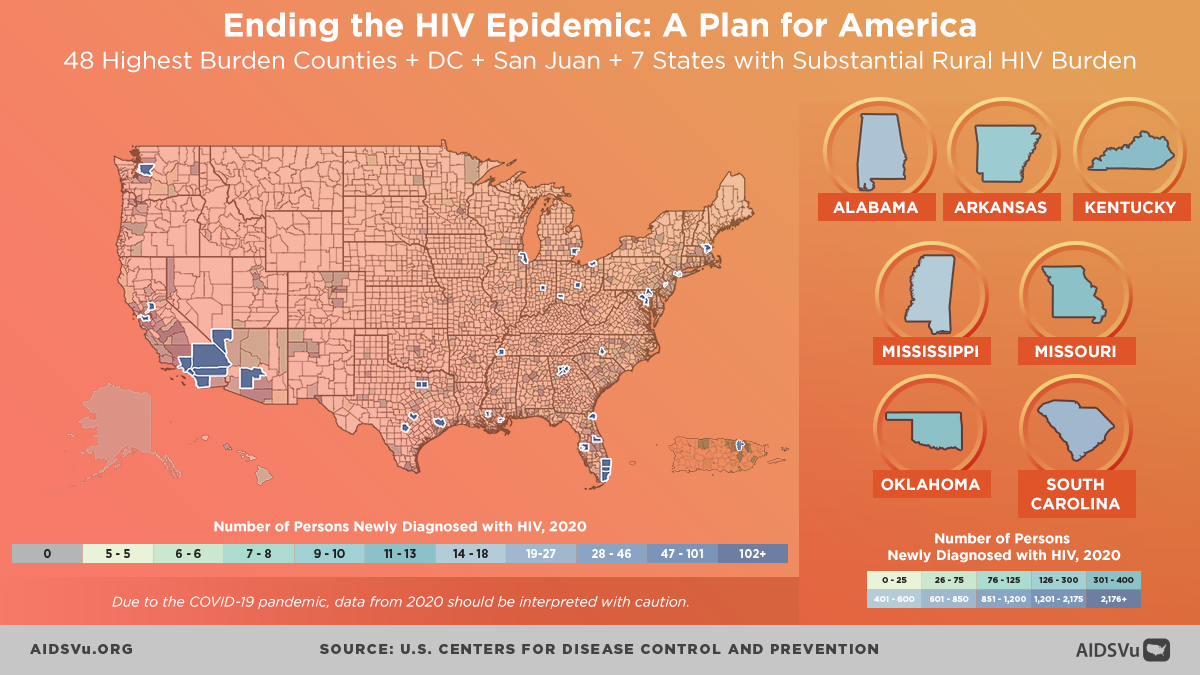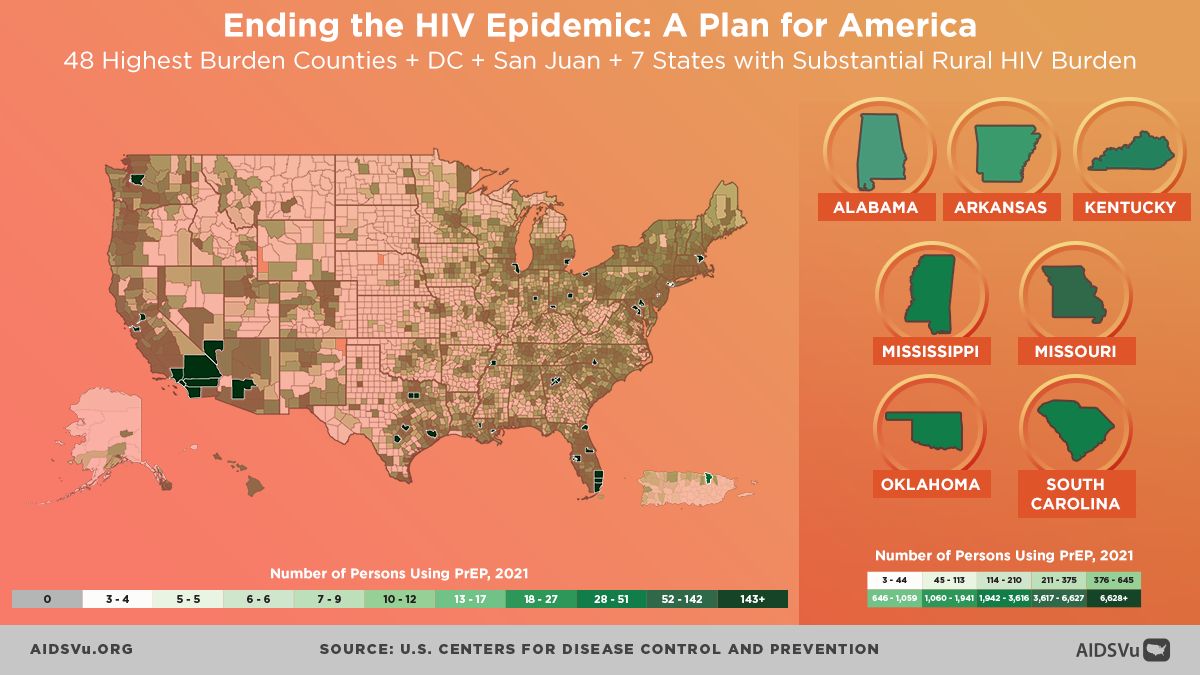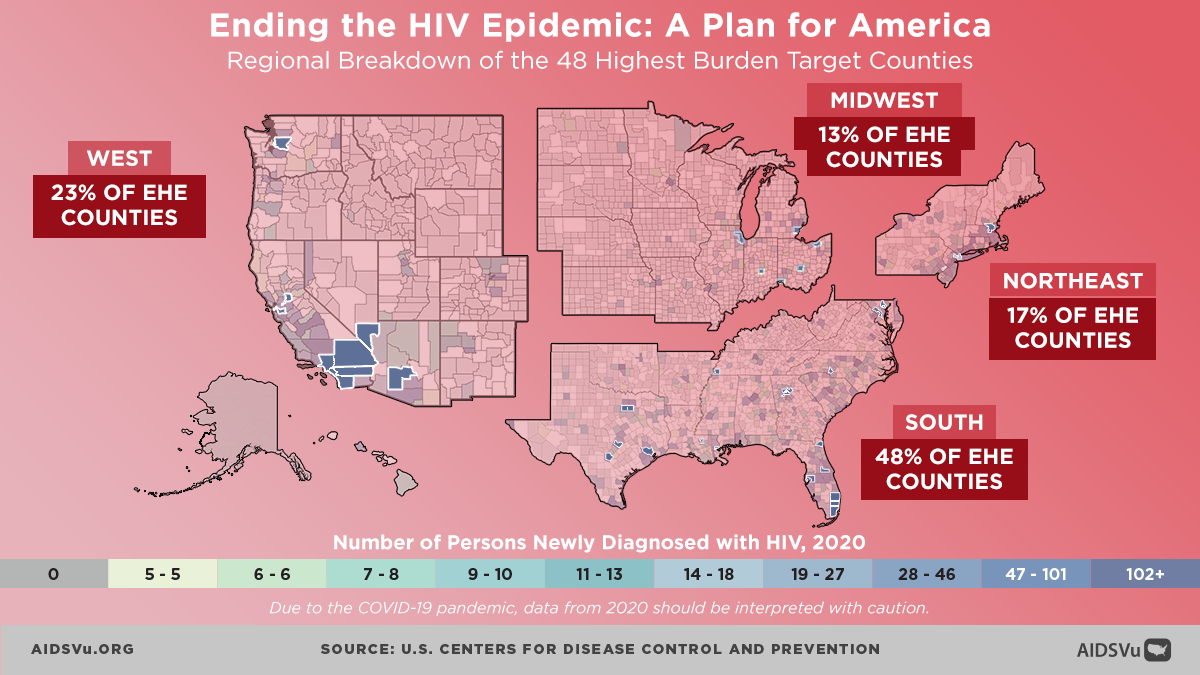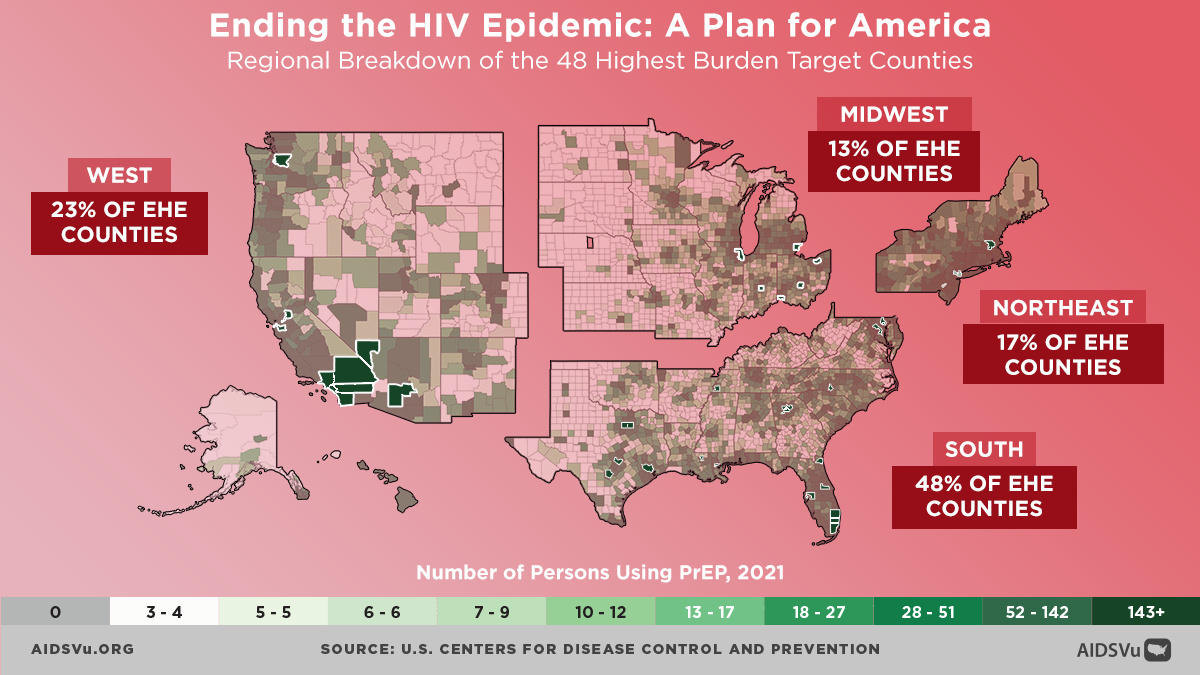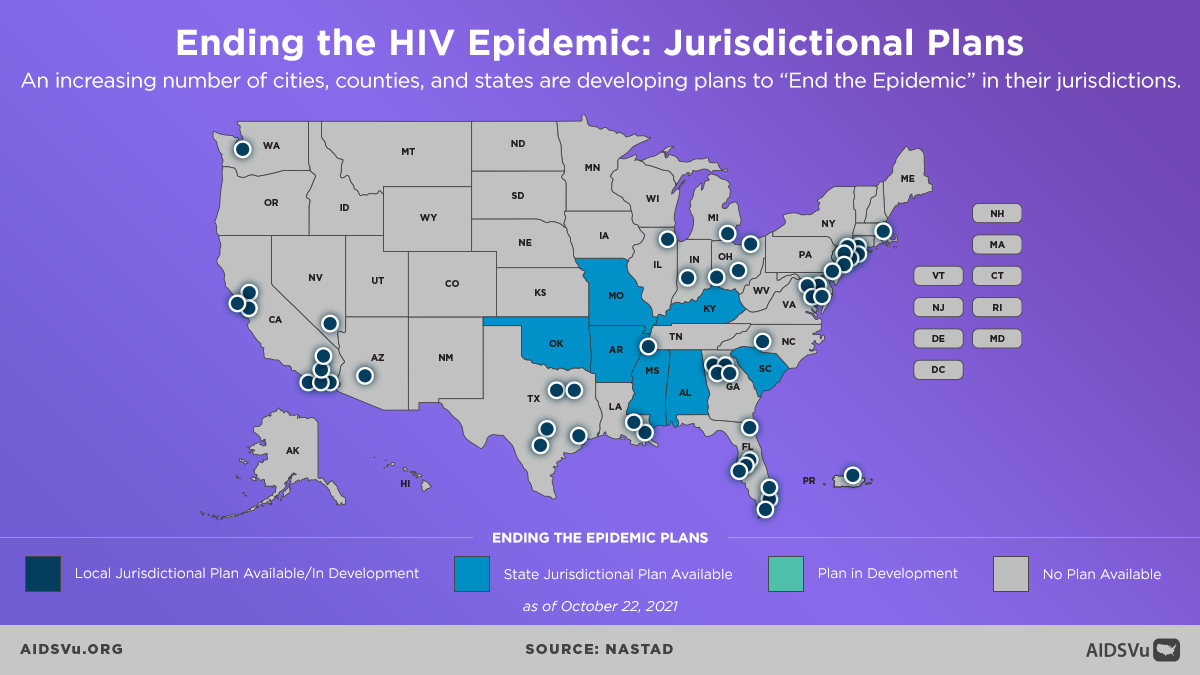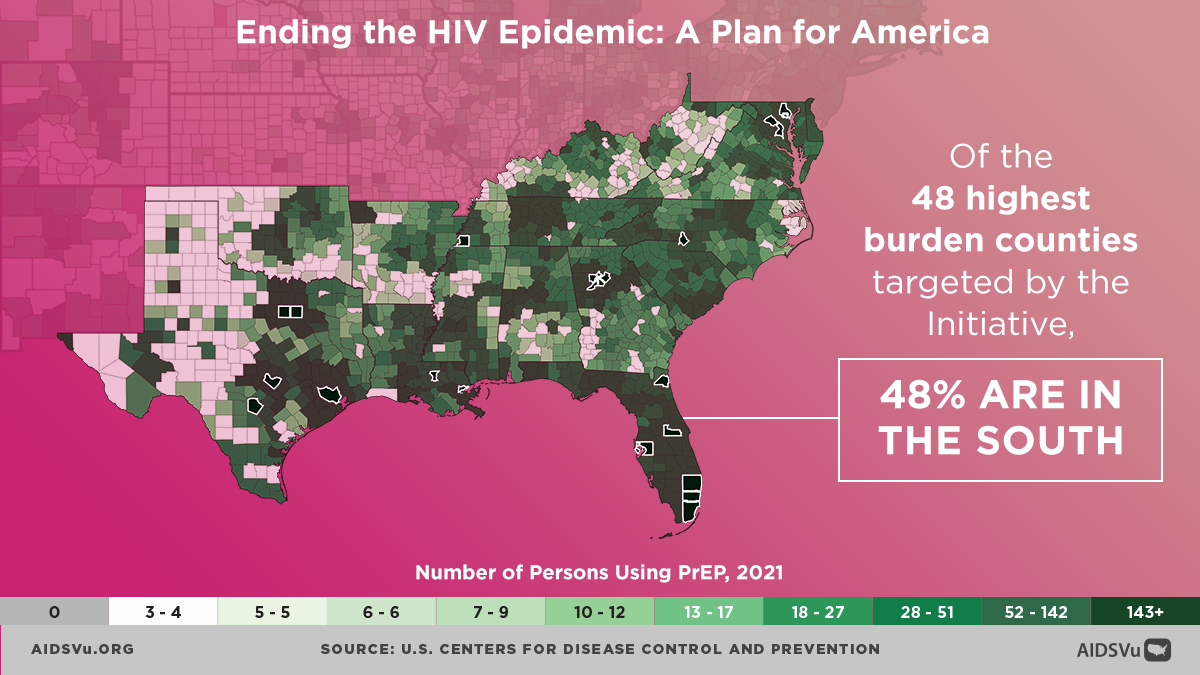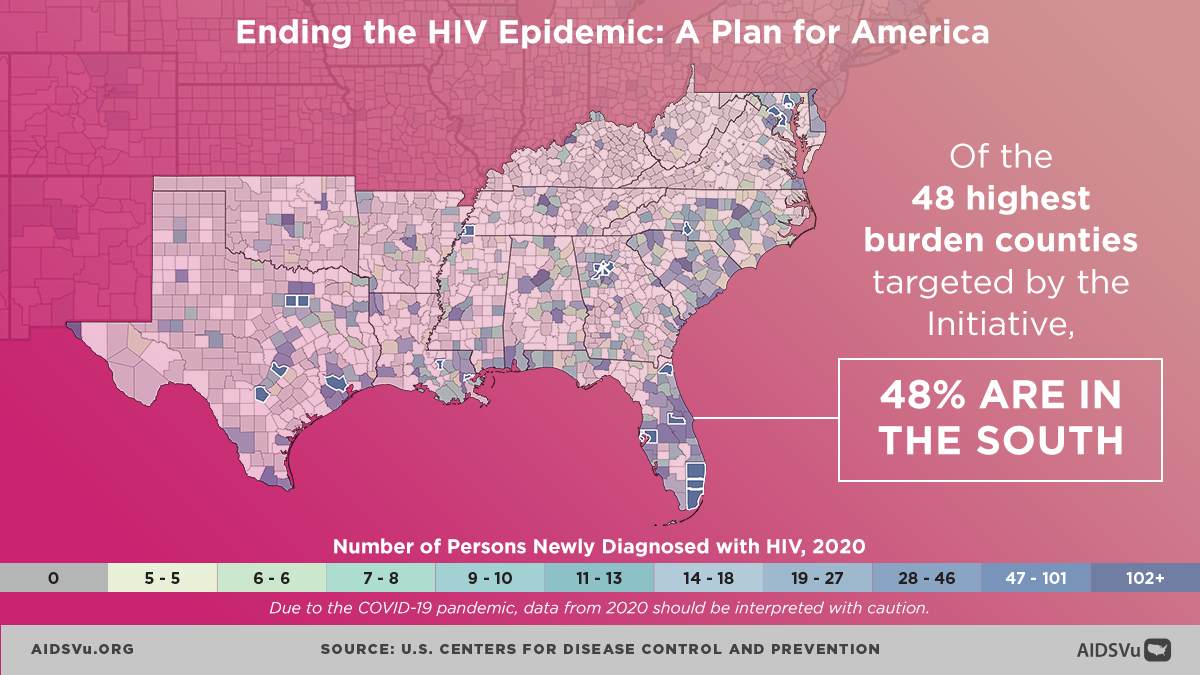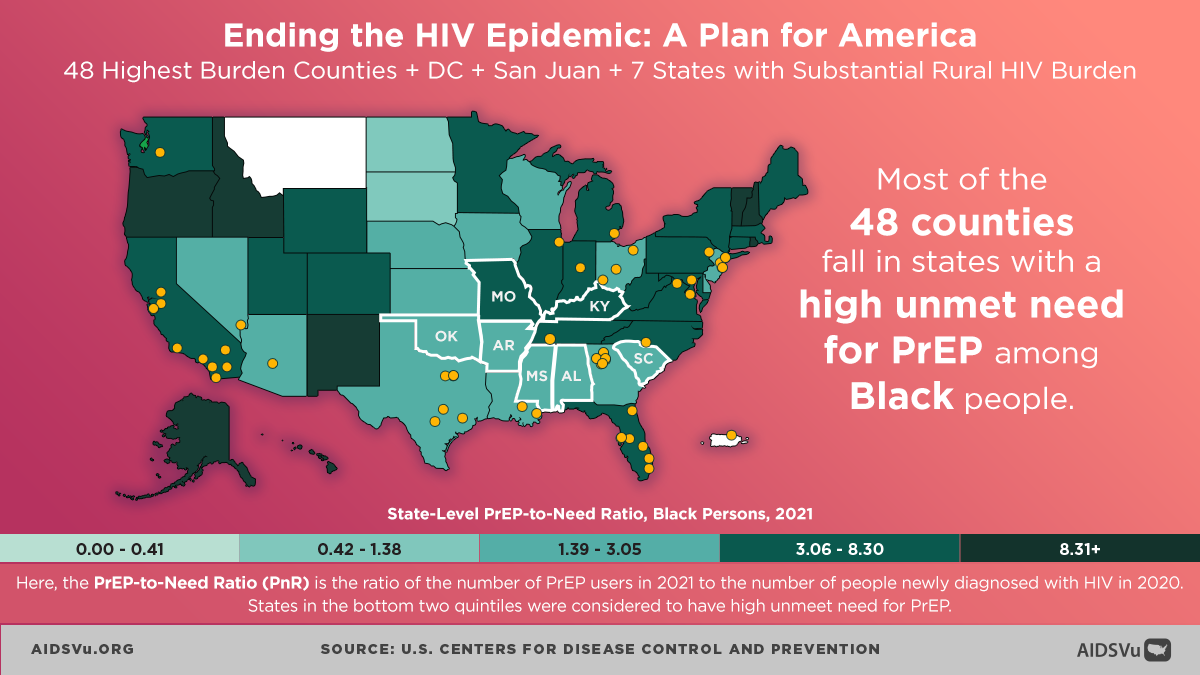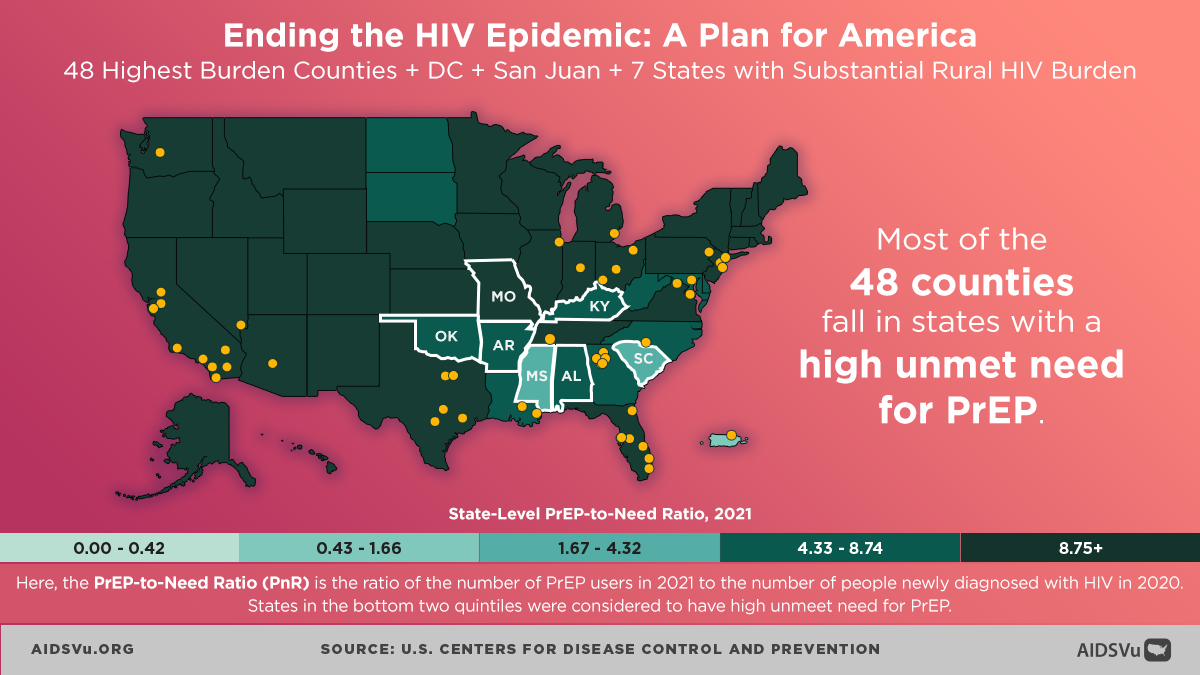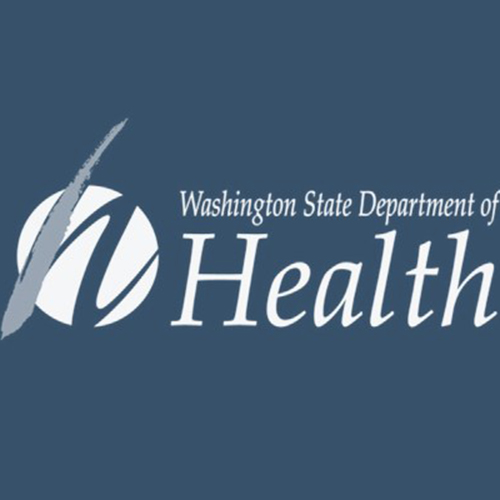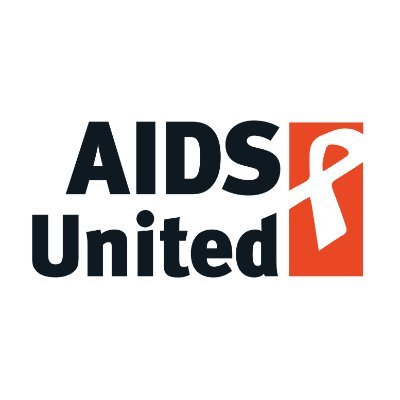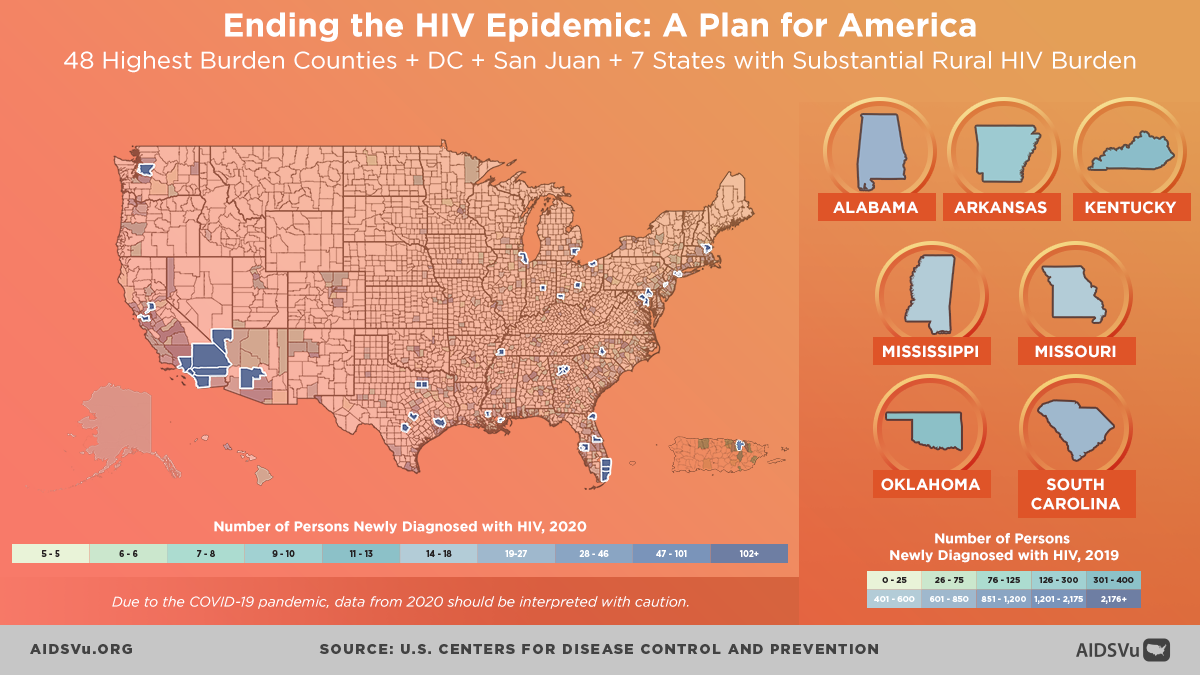
Ending the HIV Epidemic in the U.S.
Many cities, counties, and states are developing and implementing plans to end the HIV epidemic in their jurisdictions. Complementing these local efforts is a ten-year national initiative known as Ending the HIV Epidemic: A Plan for America, which has brought a new wave of attention, commitment, and resources to achieve the goal of ending the HIV epidemic in the U.S. by 2030.
“Ending the Epidemic” (EHE) plans across the United States bring together coalitions of local stakeholders to establish shared goals and strategies for ending the HIV epidemic in a city, county, state, or other jurisdiction. EtE plans are tailored to the context, needs, and resources of a particular jurisdiction and tend to take a broad, holistic view of the drivers of the local HIV epidemic. The development of these plans is usually informed by extensive community consultation.
Ending the HIV Epidemic in Georgia
In response to guidance from the Centers for Disease Control and Prevention (CDC) and the Health Resources and Services Administration (HRSA), Georgia’s 2017-2021 HIV Prevention and Care Plan reflects the shared vision and values regarding how best to deliver HIV prevention and care services. The plan identifies HIV prevention and care needs, present resources, barriers, gaps within local jurisdictions, and outlines a plan to meet continuous HIV prevention and care needs.
AIDSVu has created a set of custom static maps overlaying health district boundaries to provide additional context, as Georgia does its planning by health district.
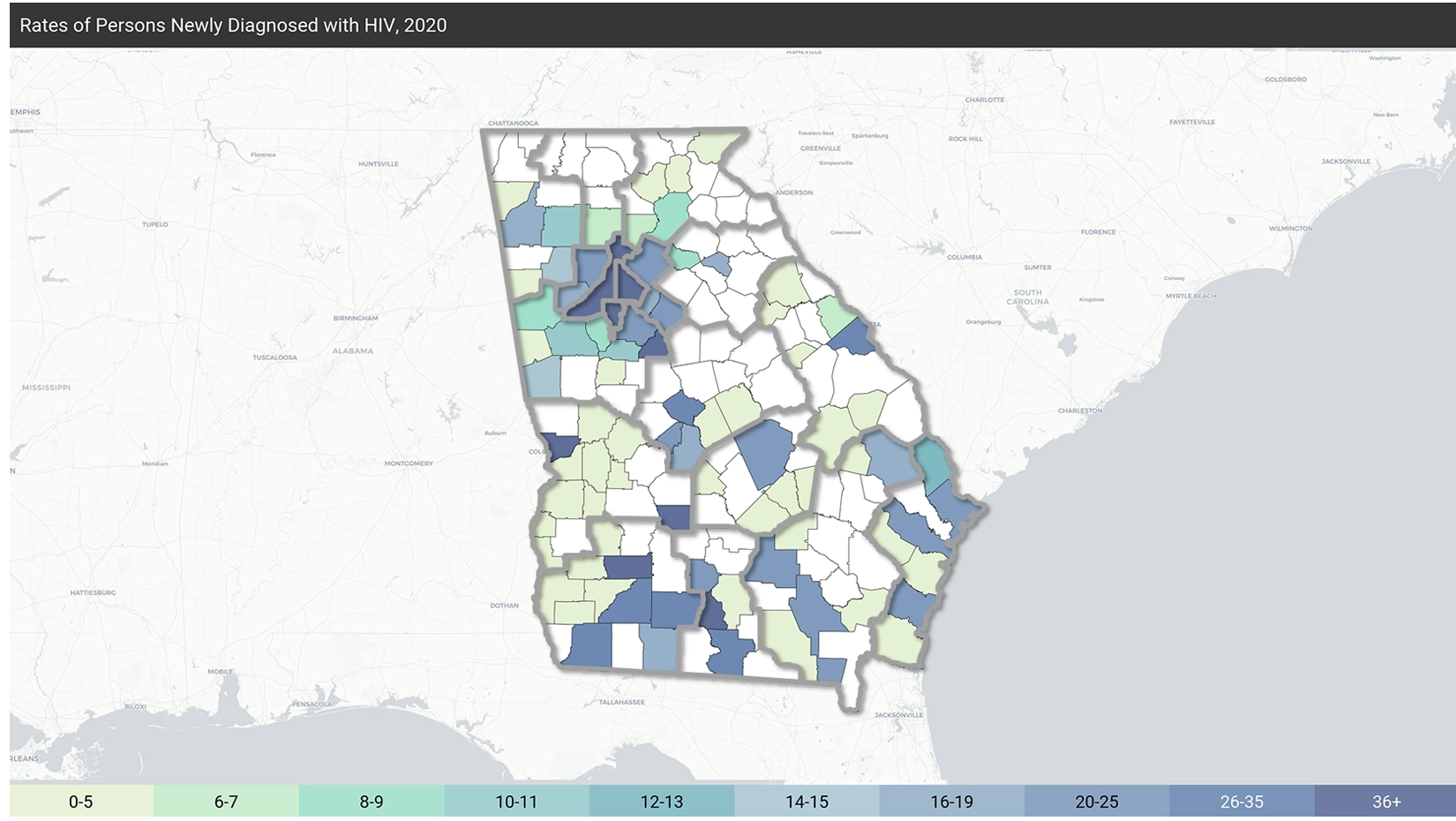
Ending the HIV Epidemic in Atlanta
Gwinnett, Cobb, DeKalb and Fulton counties have been identified by the federal government as one of over 45 counties in the nation with the highest incidence of HIV infections.
Ending the HIV epidemic is only possible through the efforts of local public health officials, community organizations, and advocates. These four counties in Georgia were chosen to receive special funding in order to facilitate these local efforts.
Ending The HIV Epidemic Indicators, DeKalb County, 2021
Estimated HIV Incidence
320
Knowledge of HIV Status
85.8%
HIV Diagnoses
342
Linkage to HIV Care
82.7%
Viral Suppression
64%
PrEP Coverage
32.1%
Ending The HIV Epidemic Indicators, Fulton County, 2021
Estimated HIV Incidence
530
Knowledge of HIV Status
86.3%
HIV Diagnoses
525
Linkage to HIV Care
83.4%
Viral Suppression
62.4%
PrEP Coverage
32.3%
Ending The HIV Epidemic Indicators, Cobb County, 2021
Estimated HIV Incidence
N/A
Knowledge of HIV Status
83.8%
HIV Diagnoses
152
Linkage to HIV Care
86.2%
Viral Suppression
66.6%
PrEP Coverage
27.5%
Ending The HIV Epidemic Indicators, Gwinnett County, 2021
Estimated HIV Incidence
N/A
Knowledge of HIV Status
84.6%
HIV Diagnoses
165
Linkage to HIV Care
87.3%
Viral Suppression
67.1%
PrEP Coverage
31.2%
PrEP as an EHE Tool in GA
The Ending the HIV Epidemic initiative aims to provide more resources to communities disproportionately affected by HIV and reach more minority populations at risk. Expanding access to PrEP is a central part of the initiative. PrEP is a daily pill that’s up to 99% effective in preventing sexual HIV transmission. Today, however, PrEP isn’t being prescribed to enough people who could benefit from it, especially young people and racial and ethnic minorities. Among the clients seen at many community health centers, many don’t have a consistent primary health care provider; instead they access sporadic care at public health centers where the few physicians who could prescribe PrEP are stretched thin. Some don’t believe they are at risk for HIV or are afraid to try PrEP due to misinformation about side effects. Many, especially those without health insurance, assume they can’t afford PrEP medications. And some simply have never heard of this prevention method.

PrEP could have a big impact in DeKalb County, for instance, an area with demonstrated success serving racial and ethnic minority populations and where the HIV diagnosis rate is four times higher than in the U.S. overall. But, until recently, the county didn’t have the resources or provider capacity to provide PrEP assessments, education, and support at local health centers.
“Our team has long wanted to offer PrEP to the community,” said Dr. Sentayehu Bedane with the DeKalb County Board of Health. “EHE funding was the engine we needed to set the program in motion. These services are filling a critical gap in HIV prevention for people in our county.”

